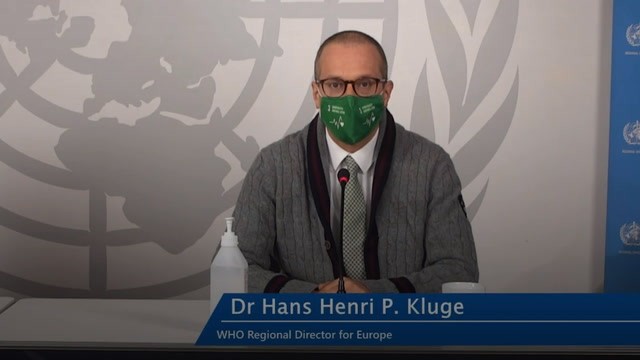The World Health Organization (WHO) today warned that the COVID-19 situation in Europe is very serious.
“We have a very serious situation unfolding before us”, dr Hans Kluge the head of WHO in Europe told a press conference in Copenhagen today. He said that the number of COVID-19 transmissions in September were “alarming”.
Last week cases exceeded 300,000 in the European region. “This is now more cases than were reported in the peak week in late Spring,” dr Kluge said.
More than half of European countries have reported a greater than 10 per cent increase in cases in the past two weeks.
“The September case numbers, however, should serve as a wake-up call for all of us.”
The number of registered infections among older age groups has increased but in the first week of September, the biggest proportion was still among 25-49 year-olds.
COVID-19 has taken almost 230,000 lives in Europe, dr Kluge said, but “this tells only part of the story – the impact on our mental health, economies, livelihoods and society has been monumental.”
WHO Europe calls for a region-wide coherence and an amplified collective effort by all European Member States to overcome weariness towards the pandemic and its consequences.
“We need to use the knowledge and know-how that we now possess, to implement what works and not implement what doesn’t…and we need to constantly update scientific knowledge as more evidence becomes available. Take for example quarantine, as a cornerstone of our fight against COVID-19.”
Dr Kluge also commented on the discussions on the length of quarantine in some countries. He called for a coherent discussion and coordination between European countries. He reminded that “the 14-day quarantine period is a conservative estimate of the infectious period, which – despite some remaining uncertainty – covers the period, before and after symptoms are present, when people may be infectious.”
A European vision of health
The regional committee of WHO Europe met on Monday. The 53 states of the region unanimously adopted a resolution on a new vision of health for the next five years.
“The European Programme of Work (EPW) focuses on meeting the needs and expectations of European citizens. With this endorsement countries articulated the importance of solidarity and trust between our countries.”
Dr Hans Kluge expressed his support for the President of the European Commission Ursula von der Leyen who presented yesterday her state of the union report to the European Parliament.
“Advocating to revitalise multilateralism, she called for a WHO that is fit for purpose and commended our joint efforts. We share her vision for a European Health Union.”
Weariness towards the pandemic
WHO Europe is aware of peoples´ weariness and disengagement towards a pandemic that has ravaged the continent for months.
“Fatigue is an expected and natural response to a long-standing public health crisis, which for everyone has had considerable implications for everyday life.”
“We need to understand people’s concerns, we need to empathize with the fatigue that is setting in. For particular sub-groups or age groups, such as youth, for example, this means we make an effort to understand the barriers they face, we engage them, acknowledge the hardship and empathize, and make them part of the solution. We move from a ‘do not’ to a ‘do differently’ finding newer and safe ways to be social and avoid loneliness,” dr Kluge said.
The WHO Regional Office for Europe is developing a framework to help authorities, both national and local, to plan and implement national and subnational strategies to counter fatigue and reignite public support for recommendations and COVID-19 preventive behaviours.
Additional links:

